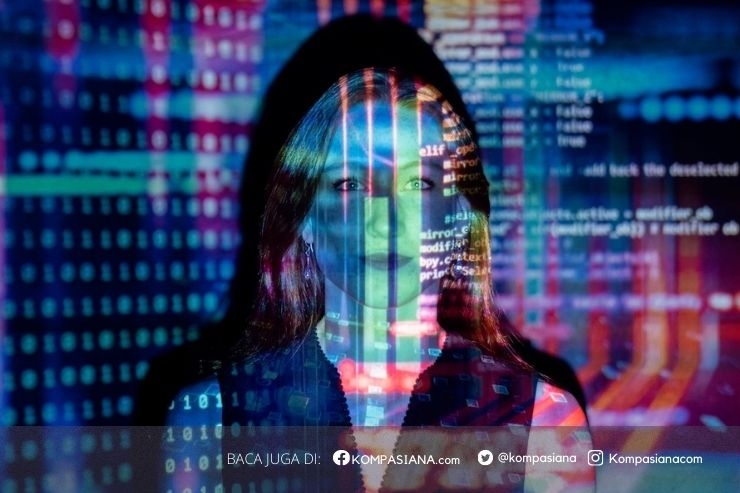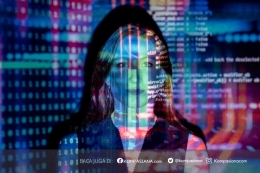In a current development, a Director of Education and Educational Force, Prof. Supriadi Rustad, in a workshop with all rectors of private universities in Central Java (Saturday, 24/3/13), indicates that DIKTI (Directorate General of Higher Education) plans to ‘force’ lecturers to pursue higher degrees (master and PhD) and suspend their NIDN (National Lecturer Identification Number) if they refuse. The director insists that DIKTI has provided around 1000 overseas scholarship for lecturers but the lecturers are too spoiled by their current double incomes (salary and professional/functional incentives) and lazy to move on.
For DIKTI’s overseas scholarship awardees, this threat can become a sarcastic laughing matter. Why? Because it shows that DIKTI officials seem to fail evaluating their own management and hastily point their fingers at the already weak subordinates when their working objectives are not achieved. Now, let’s talk about the management of DIKTI overseas scholarships in a more emic detail.
Since its first launch in 2008, the ‘Diktiers’, a name awardees of DIKTI’s Overseas Scholarship invent for themselves, may have given their best effort to feed the sponsor with valuable inputs in the expectation for a systematic improvement on the scholarship management quality. However, the follow-ups are unfortunately still poor and reactive rather than anticipative. The exact same problems recur every year. The same cries from the Diktiers are constantly heard but their dedication to the study, the additional time slot to do extra work in order to survive in a far-away country, and a growing apathetic feeling for a real managerial improvement from DIKTI’s side may eventually stop them from criticizing the sponsor. As a Diktier, I believe our effort should go the next level because gentle approaches in the lower level have evidently been disregarded. But why bother? This is because, to me, DIKTI scholarship may be the best scholarship an Indonesian lecturer can ever get but, at the moment, also one of the worst scholarship schemes any recipient may ever want. Paradox as it may sound, that is an honest appreciation from a Diktier.
I’ll start from its good points.
Anyone who wishes to pursue a higher degree at an overseas university must be happy and so proud when they are sponsored by their own government. Their sense of national pride, high self esteem, and confidence will boost their morale to do their best to satisfactorily complete the degree and return home as soon as possible. Of course, living in developed countries is always comfortable and nice but it can never defeat the satisfaction of living on our own homeland, no matter how the country still is. This sense of patriotism will surely manifest in every Diktier’s performance which can be reflected when building relations with their international fellows. Imagine how an Australian Award Scholarship recipient feels when his/her Australian friend says “So, you are studying here funded by our tax?” I had felt that before and it surely was, and actually still is, not pleasant. Such feeling of being “helped by your tax” is really troublesome in our moves for networking. It also undermines our confidence and sense of independence. With DIKTI scholarship, I can proudly say “I am here now funded by my own country”. This scholarship reinforces Diktiers’ self esteem and helps them build a good impression for Indonesia in the international level.
Next are the catches.
The most troubling weakness in the DIKTI scholarship is the late transfer ‘habit’. We all understand that DIKTI’s scholarship scheme is bound to the national budgetary plan. The plan must be negotiated and approved by the House of Representatives (DPR) in the beginning of every year which may be completed on March or even April. Afterwards, administrative paperworks and a complicated long red tape will usually take another month until the Diktiers finally receive their grants. So, to get the fund, Diktiers should spend extra energy and, most of all, emotional resources. Such a long and tiring effort is so demoralizing and discouraging which, in the end, definitely affect their academic performance too.
There are no standardized procedures for every Diktiers. Very few Indonesian universities help their Diktiers by sending the money in the foreign currency. Most students get their money in Rupiah and have to plan their transfer to the currency of the country they are living in. Otherwise, they will get less money than they should because of the currency differences. They can get reimbursement for the differences but it is yet another long and tiring paperwork. Most of times, Diktiers envy other scholarship receipients like Australian Award, Chevening, Full-Bright, who peacefully do their study in their maximum speed of quality without being impeded by such administrative nitty-gritty.
In terms of sufficiency, DIKTI officials always advise the recipients in their pre-departure briefing to manage their money ‘wisely’ because they may have to undergo a ‘little’ delay of transfer in the beginning of every year. However, how can a Diktier manage such small amount of scholarship to last for four to five months more than what it is allocated for? Should they also reduce their meal quantity and pay their billers less in order to save? Should they always beg for a tuition fee extension from the university in every beginning of the year? This advice does really make no sense and shows that DIKTI has no anticipative plan. For Diktiers, this is also an embarrassing impression of Indonesia as a country.
Let alone, every Diktiers, who are mostly permanent lecturers in Indonesian state universities, also have to lose their professional and functional incentives. These incentives are additional payments attached to their function as a lecturer at the university. These payments are significantly helpful for them to support their families at home. Since it will be stopped when they nick off overseas, should their families back home also stop being supported? What will happen if the lecturer has to leave family members who are still in grave need for this payment, e.g. aging and sick parents and school-age children? Will the Diktier just have heart to hit the road and not look at them anymore until one day s/he comes back and says “hey look, I am back a PhD and now I can start supporting you back”?
Solutions
If DIKTI officials can do what Jokowi has done, i.e. “listen first before planning actions”, they do not have to worry about their quota fulfilment. If they can make sure that teachers and lecturers are reasonably comfortable to leave their families and fight for a higher degree, no ‘sane’ lecturer will refuse to grab the chance. At the moment, all disappointed Diktiers can only say this to their juniors who ask them about this scholarship, “if you are ready to be sent away from your home country and leave all the comfort of being together with your loved ones, forsake your parents and families by dropping your financial support for them, throw out other extra incomes that help you build your family’s economy, swallow the pain of taking care of complicated administrative paperworks and a long tiring red tape amidst the pressure of finishing off your study, sleep much less in order to do extra work and prepare for a long delay of fund transfer in the beginning of every year, and finally return home to start all over again; knock yourself out!
(A draft sent to editors of an English-written newspapers in Jakarta on 29/03/2013 but eventually rejected)
Follow Instagram @kompasianacom juga Tiktok @kompasiana biar nggak ketinggalan event seru komunitas dan tips dapat cuan dari Kompasiana
Baca juga cerita inspiratif langsung dari smartphone kamu dengan bergabung di WhatsApp Channel Kompasiana di SINI






